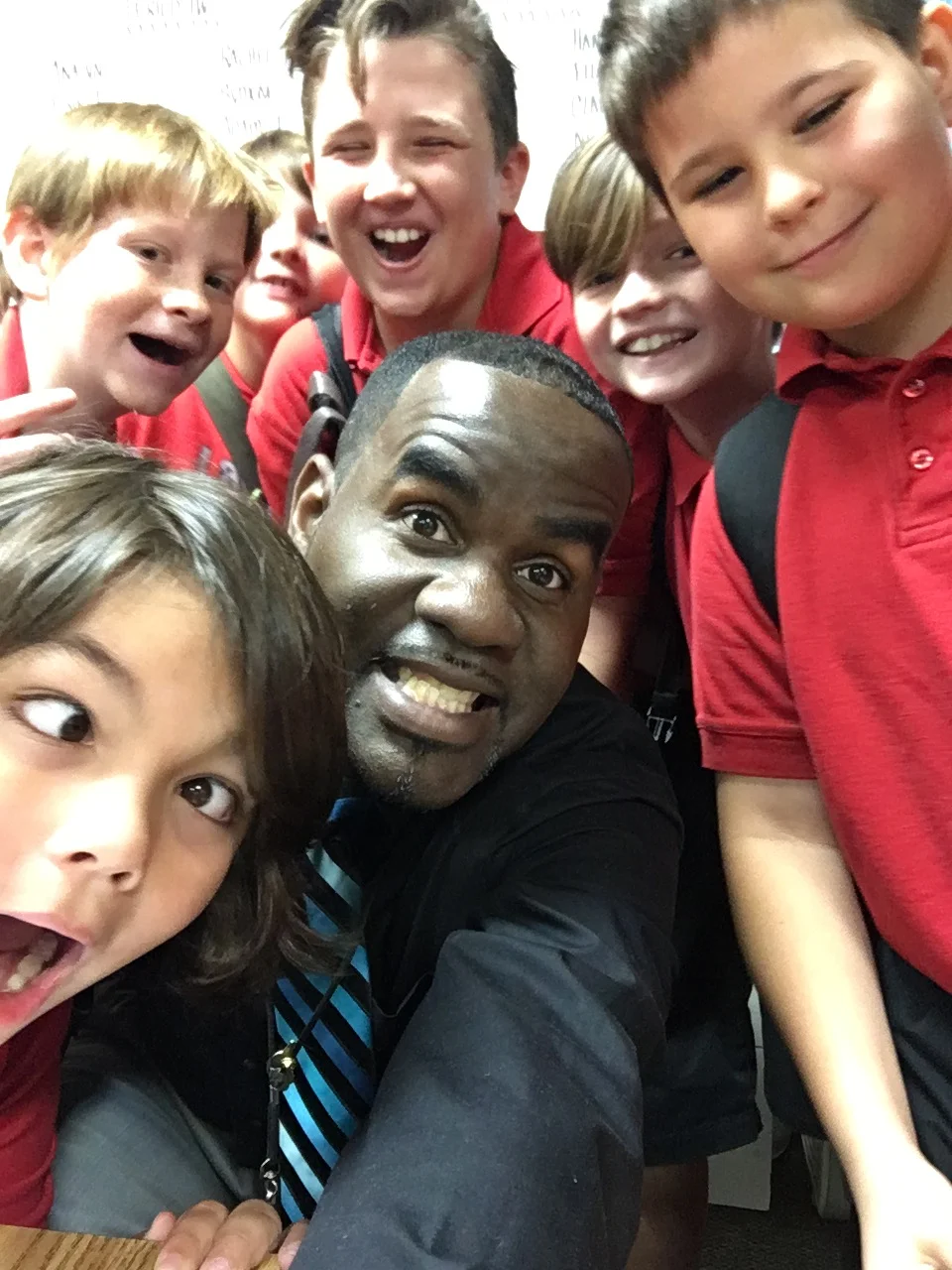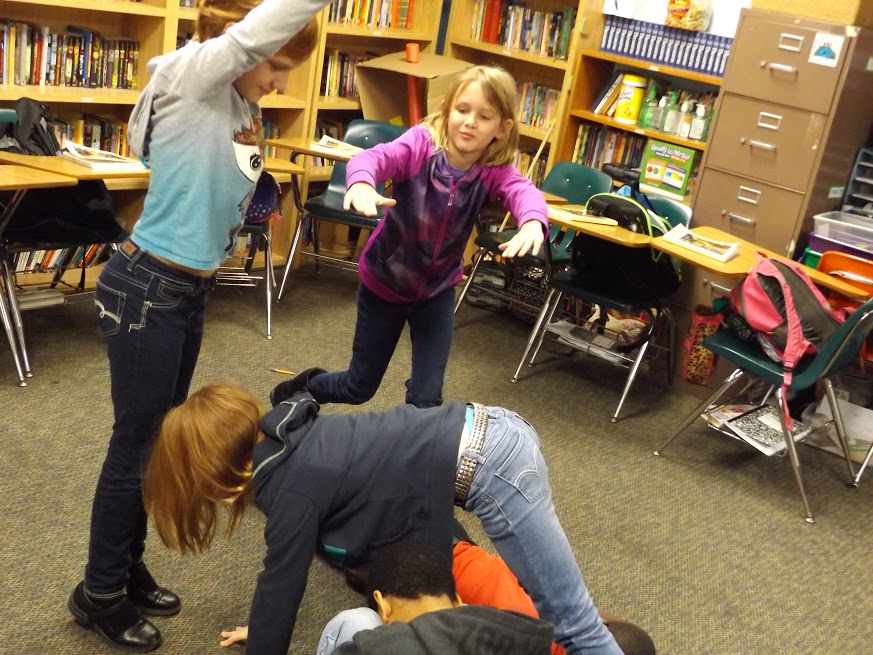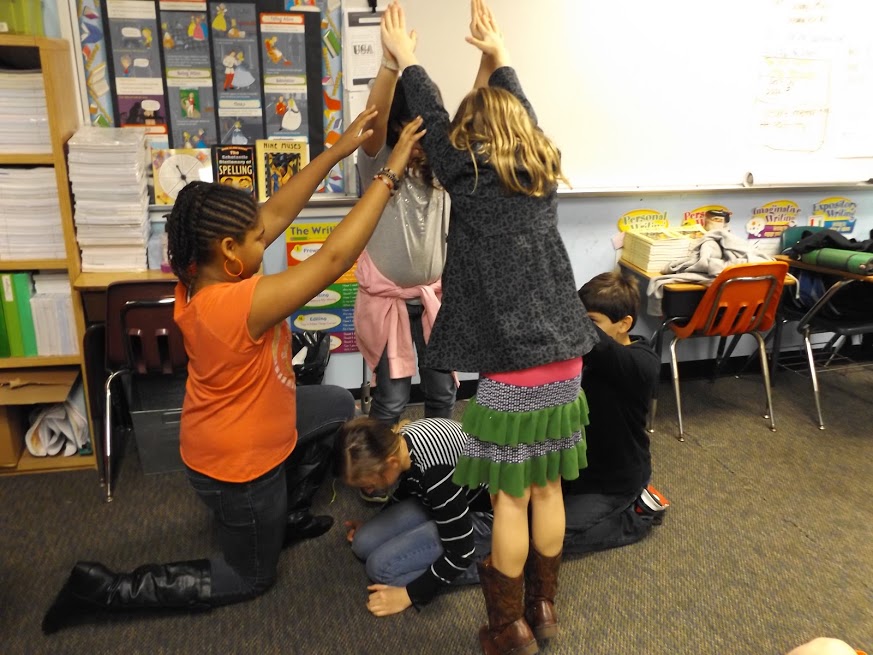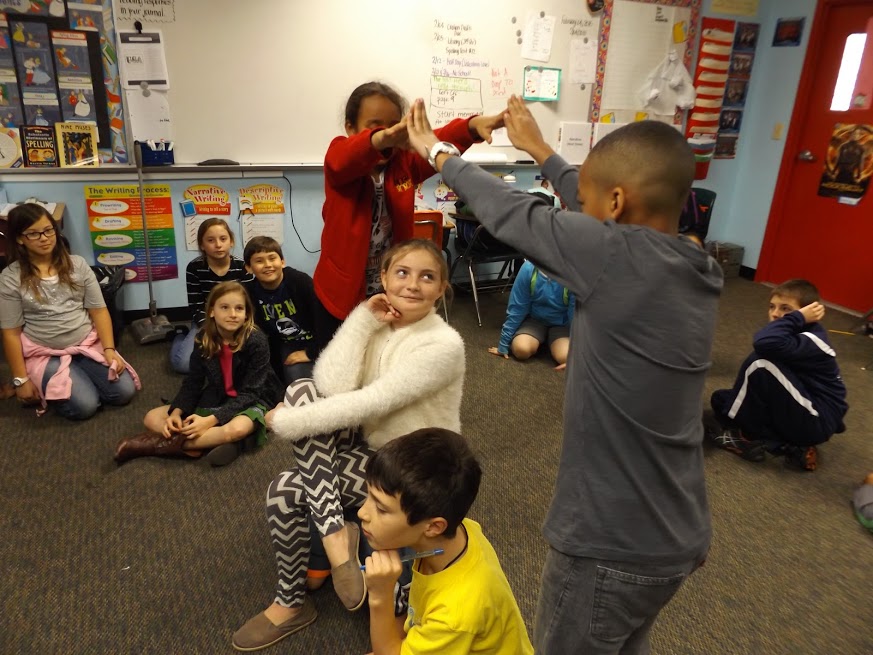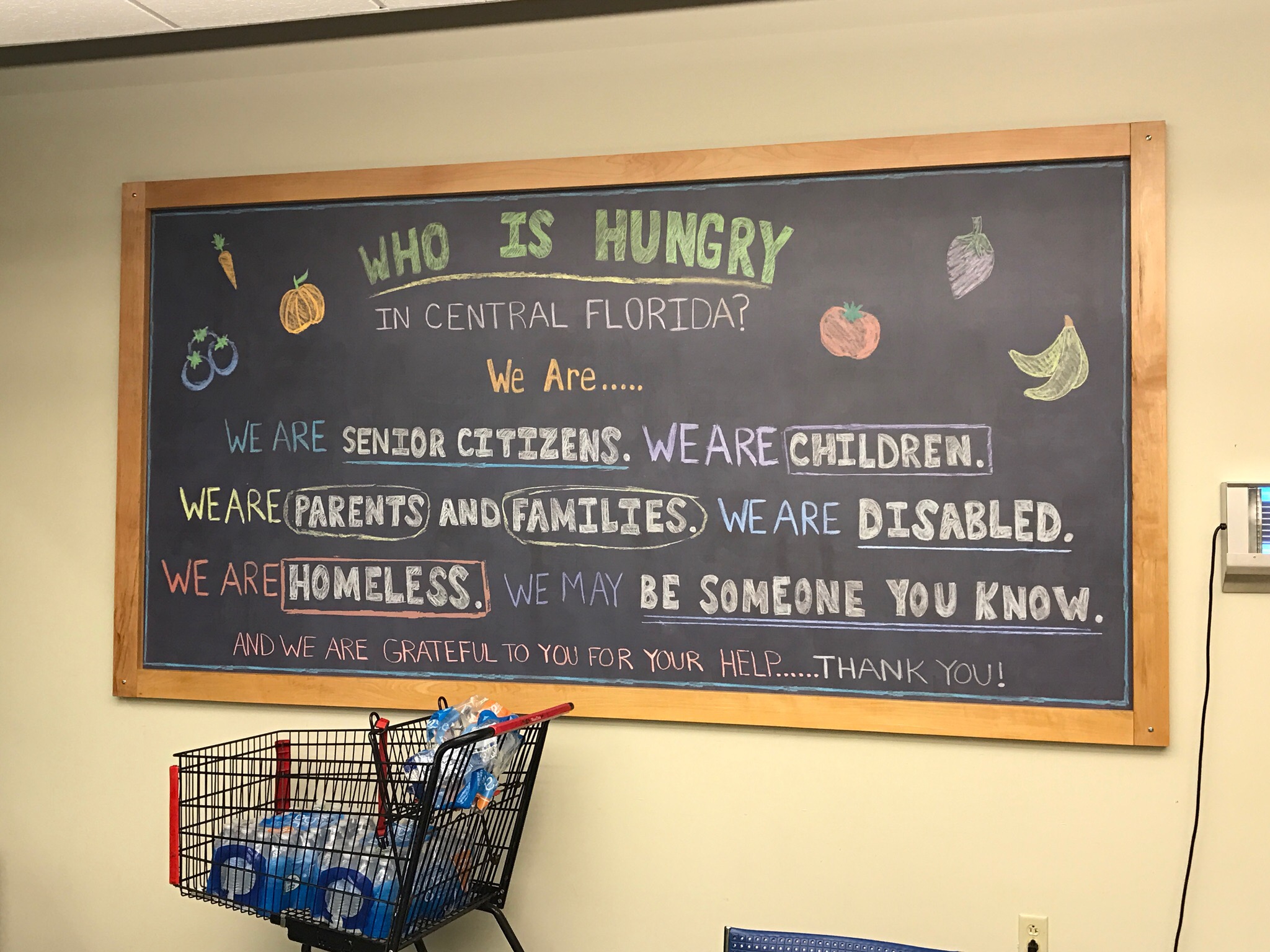Telestory
I have recently learned about an iPad app called "Telestory" which essentially allows those who use it to "tell a story" in several different ways. So far, my students and I have played around with the News Broadcast idea, which includes options for news anchors reporting from the desk, an "eye in the sky", the beat, the sports roundup, a critic section, a weather report feature and an empty slot which can be filled with a creative student choice. Students are able to add multiple anchor stories, augmented reality attire, such as police hats, goggles and even wigs. Telestory is free at this time and is a great way for students to "create" their own show. Below is an example of a practice Telestory video that the students and I created in the classroom as an introduction to the app. They are absolutely thrilled to continue to work with it to create and tell stories. This was a practice for us, so the kids randomly discussed things; don't take this one too seriously. [wpvideo l04tImBe]
Creating Audio with Garage Band
Students are absolutely thrilled to be able to work with garage band to create audio. Now I am able to give Garage Band a purpose, not that they couldn't continue to use it just to create. I have intertwined Garage Band use with podcasting. We are now in the process voting on our third podcast title of the year and students may be able to have their audio featured as background music. [audio src="https://denegainey.files.wordpress.com/2017/03/zeke-podcast-track.m4a"][/audio]
One Example of Audio Track for Submission (Above)
[audio src="https://denegainey.files.wordpress.com/2017/03/hannahs-best-podcast-song-ever.m4a"][/audio]
Example Two of Audio Track for Submission (Above)
[audio src="https://denegainey.files.wordpress.com/2017/03/reids-song-for-podcast.m4a"][/audio]
Example Three of Audio Track for Submission (Above)
[audio src="https://denegainey.files.wordpress.com/2017/03/e191adoe197aae19195e197a9e19495t-e197b0e1918ce19495ie19195-e196b4ee197b7-2017-e19687ie190afee19687.m4a"][/audio]
Audio Track (We used it for Black History Moments)
Students will vote on the best audio track once all have been submitted and that is the track that will be used for that month's podcast. They are stoked about the idea, completely motivated and so am I!
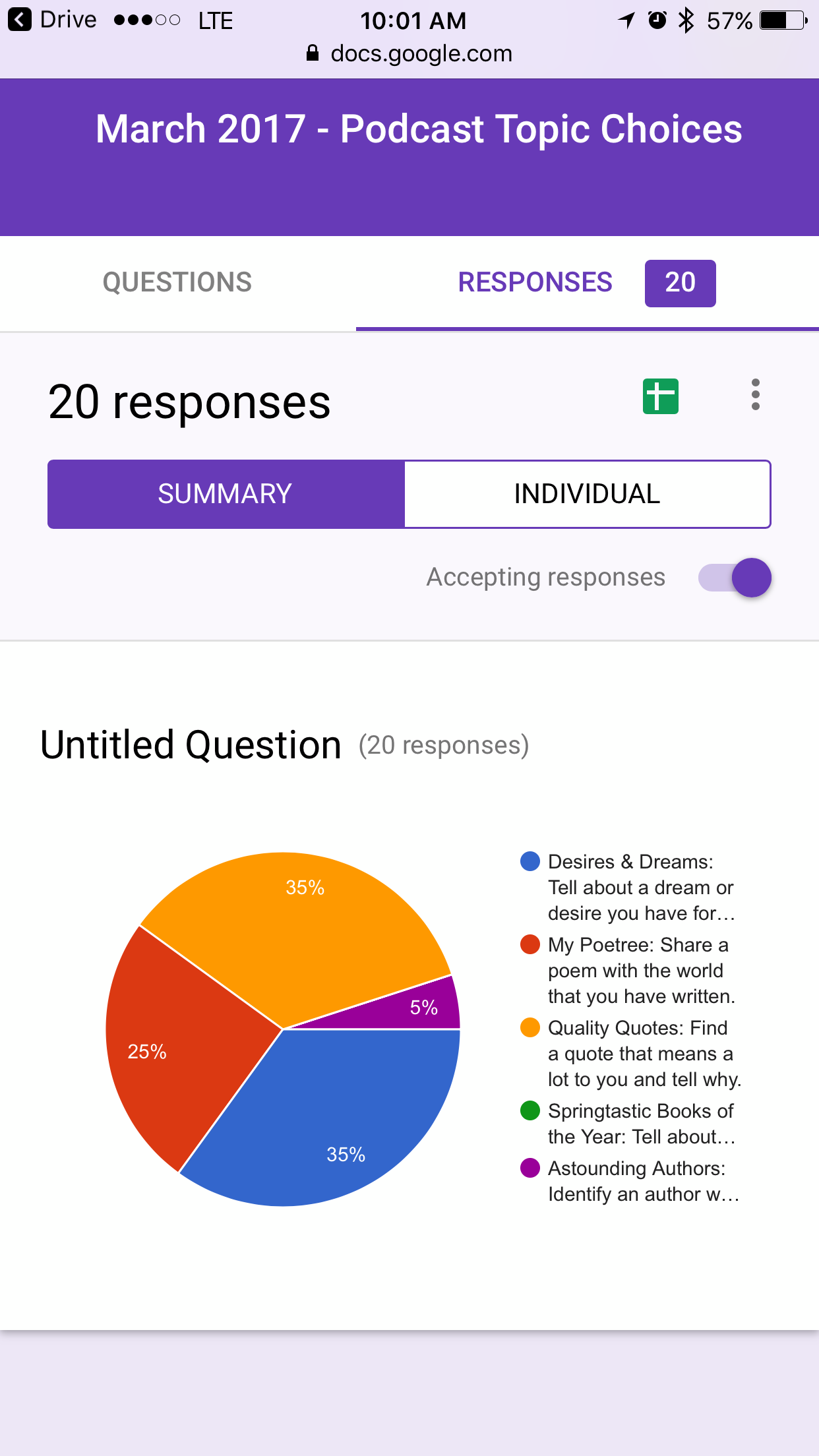
I cannot wait to move forward. This was a quick share, but certainly there will be more to come!
EdCamp Saint Augustine (#edcampstaug)
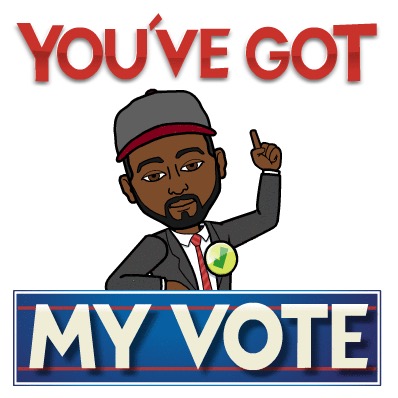 Ed Camps are simply the new thing (for me), or maybe just "the thing." Sure, there are still excellent conferences and forms of professional development, but Ed Camps I like to think of as by teachers for teachers, to the extent that learning something new is guaranteed. After all, You don't find many who are willing to give up 4-8 hours on a Saturday to learn, especially with no monetary compensation. Not only that, there is much to be said for those who travel some distance to get to the Ed Camp, not to mention all of the planning and behind-the-scenes work to make it run so seamlessly.
Ed Camps are simply the new thing (for me), or maybe just "the thing." Sure, there are still excellent conferences and forms of professional development, but Ed Camps I like to think of as by teachers for teachers, to the extent that learning something new is guaranteed. After all, You don't find many who are willing to give up 4-8 hours on a Saturday to learn, especially with no monetary compensation. Not only that, there is much to be said for those who travel some distance to get to the Ed Camp, not to mention all of the planning and behind-the-scenes work to make it run so seamlessly.
EdCamp St. Augustine was no deal breaker as many gathered to learn and grow with each other. In fact, students from Mr. Farnum's class joined us and gave us tours of the amazing (and pricey) Palencia Elementary School that truly is structured for student success, from the extensive "green elements" (earth-conscious) of the school, to the sheer space and opportunity for students to be immersed in their own learning. The students also participated in a session on Student Voice, where each spoke boldly about the important of giving them the opportunity to speak and how it has transformed their educational experience. The four topics below reflect the sessions I attended:
Session One: Virtual Field Trips
Katrina Worthington facilitated this session and we discussed the many benefits of FieldTripZoom, Skype and Mystery Skype. Further, the idea of inviting authors to Skype or go a hangout with you and your students can be both a powerful integration into the classroom as well as an opportunity for you to break down the walls and bring learning to them, especially if you can't physically take students to the source. I have already seen a great topic variety to supplement what we are doing in the classroom.
Session Two: Podcasting
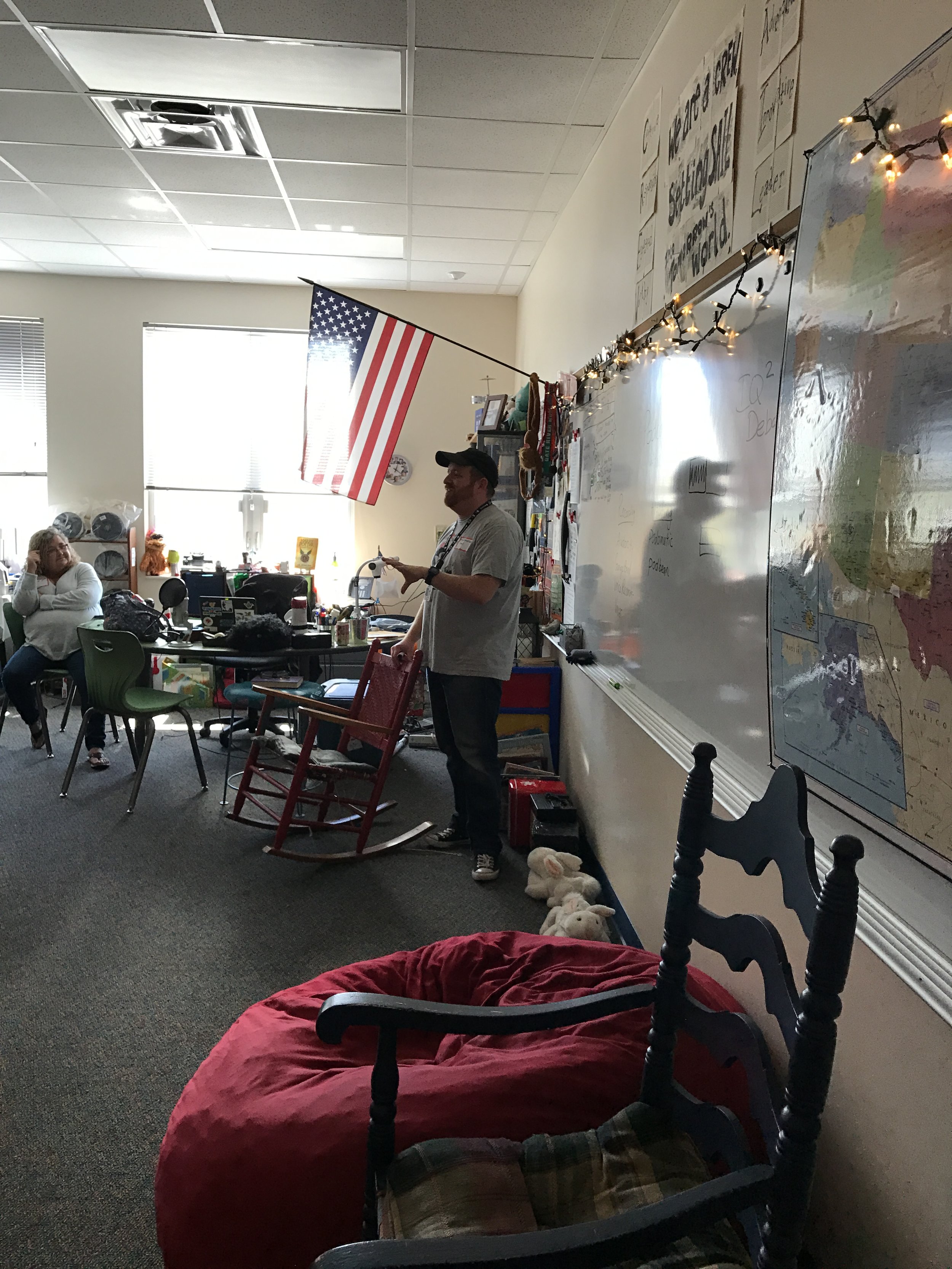
Magic Pants Jones (Sean Farnum) facilitated this session on podcasting, introducing the idea to educators as a way to empower students and give them the space to again, have a voice that can be shared beyond the four walls of the classroom. Sometimes the important messages are allowed to be delivered when educators give the students the opportunity to share that. Many ideas were bounced around the room, to include: One Word for 2017, inspirational podcasting, podcasting to state and local representatives, and conversation or interview-based podcasts. I did get the opportunity to briefly share my experience with students having worked with them to produce the second podcast of the year titled: "Black History Moments." I have conveniently linked it to my blog page for easy listening. There is a growing excitement surrounding getting students talking and creating in this way. Platforms like Garage Band, iPad Audio Apps and even Voxer can be used to grab the student recordings, and then audacity and/or garage band can be used for editing. Podomatic is a great way to publish the podcast, as well as Podbean and even Apple Itunes.
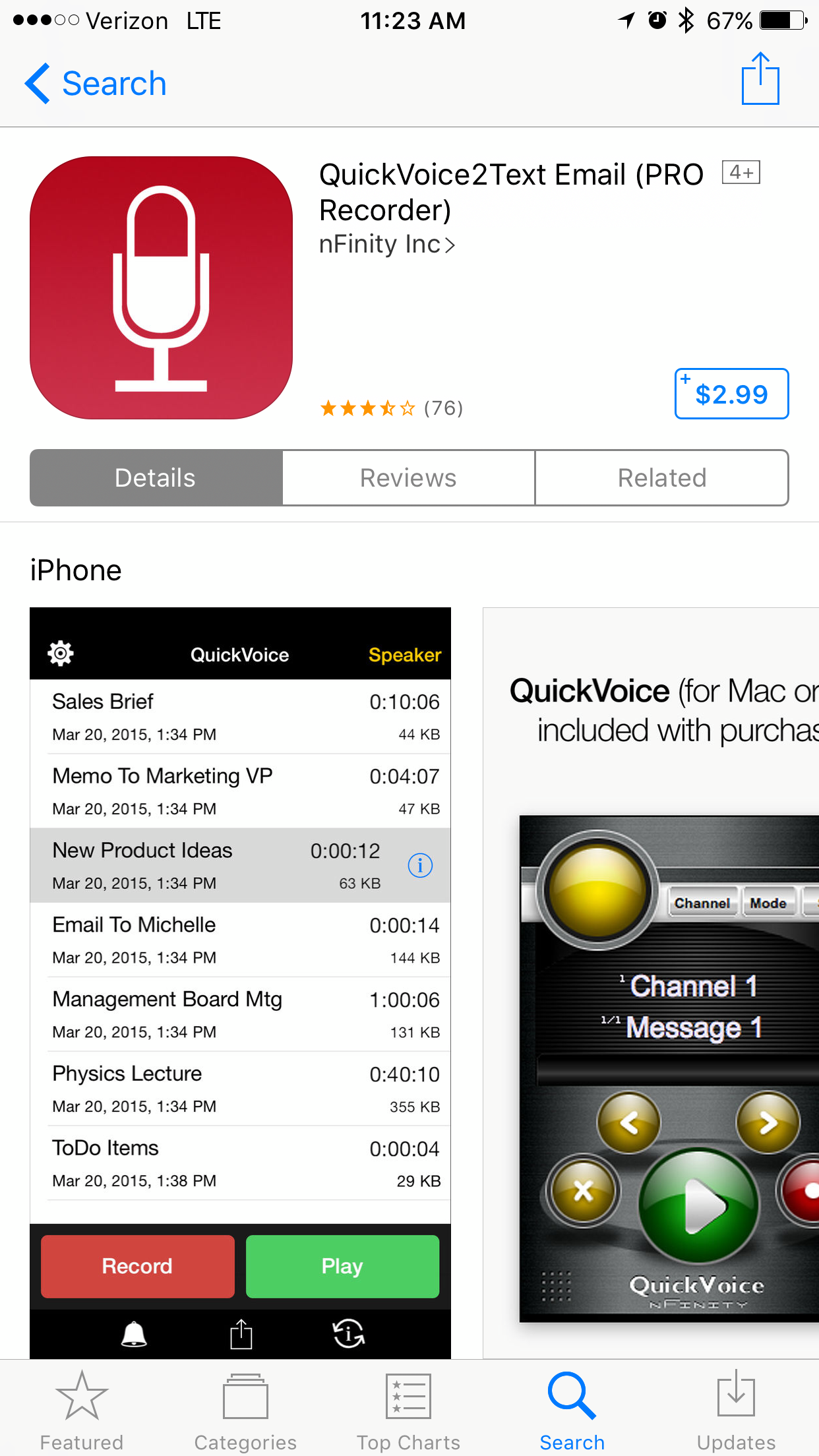
Session Three: Student Ed Camps
I have always wanted to try this out. What an incredible thought/idea, to approach teaching and learning in a new way. What if we allowed students the opportunity to have a voice and learn in a different way? One of the huge takeaways from this session was the fact that students are losing sight of social skills and technology (though useful and appropriate for learning and life, often becomes the tool used for babysitting students when adults are preoccupied or busy with life themselves. The true call of technology is to supplement life, not take over it. A group of educators present in the conversation derived the hashtag #staugssedcamp so that we can get the party started, share ideas about implementation over time, successes and tweaks. Jennifer Casey, Julie Haden, Kristin Westberry and Katrina Worthington were among the spark igniters in this session. We are all looking forward to engaging students in this way. Katrina spoke about the structure of the camps, and how topics were selected by the students, from Starbucks to Minecraft and even favorite drink items. She further commented on the level of student engagement therein and the oral reflections with students after the sessions were over. Joe Robison shared some valuable input as well regarding his experience with student edcamps.
[audio src="https://denegainey.files.wordpress.com/2017/03/dylan-campos-michael-jordan.m4a"][/audio]
Student Podcast Recording Above
Session Four: Play in Classrooms
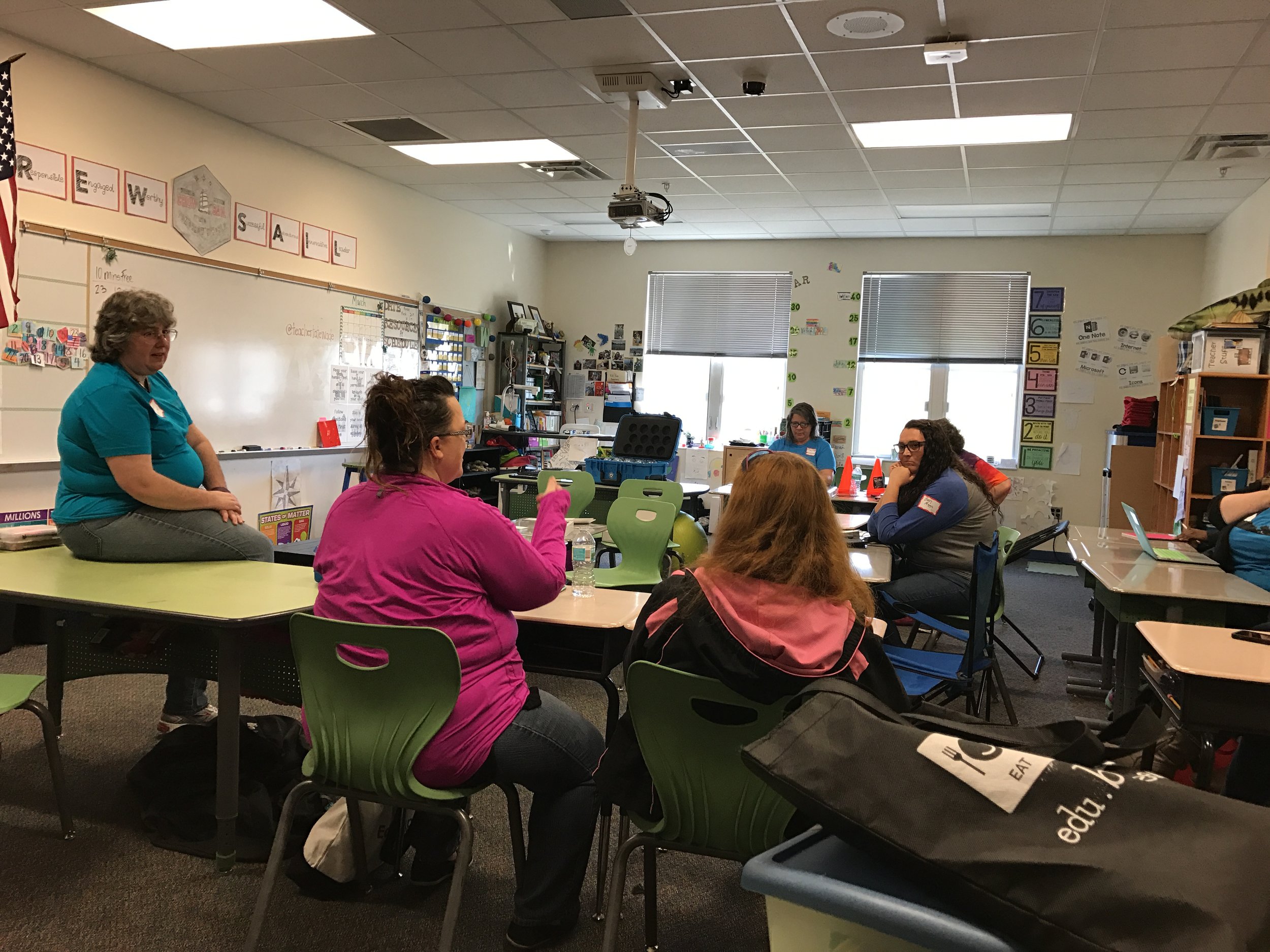
At EdCamp Orange, Sean Farnum facilitated a session on the importance of play in classrooms for students, and Tammy Neil continued that conversation at EdCamp St Augustine. (#edcampstaug) There are many ways that students can play in the classroom, but Tammy Neil stated students need to "play with a point." That makes sense, as there should be some structure so that even though it is play, it is a learning experience.
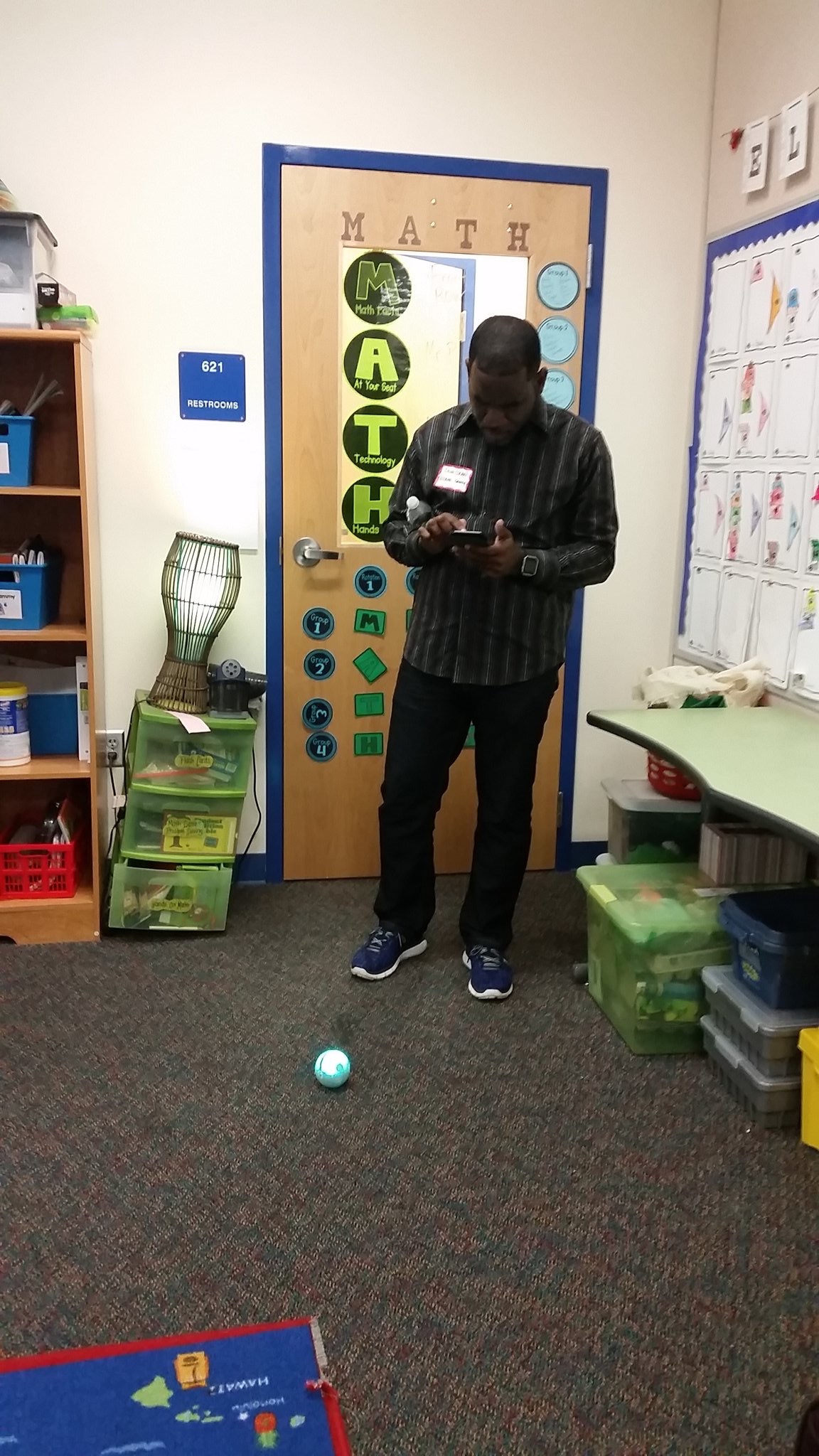
The term inquiry-based learning serves as a great umbrella for play in the classroom as it is research-based and by nature of the idea, there is no one "right way" to inquire. We all know the value of asking questions. And as I always say, without questions, we lack answers. From ideas like Go Noodle, maker spaces, spheros, and ozobots, to gamifying the classroom with Classcraft, students are learning while doing. There is no one way to play, but play is crucial.
I can't wait for the next ed camp, and it looks like that will be on March 25th, which is EdCamp Putnam in Palatka. It's all about the teaching, learning, sharing and growing. I am grateful to be surrounded by people who believe in being lifelong learners.
What About the Children?
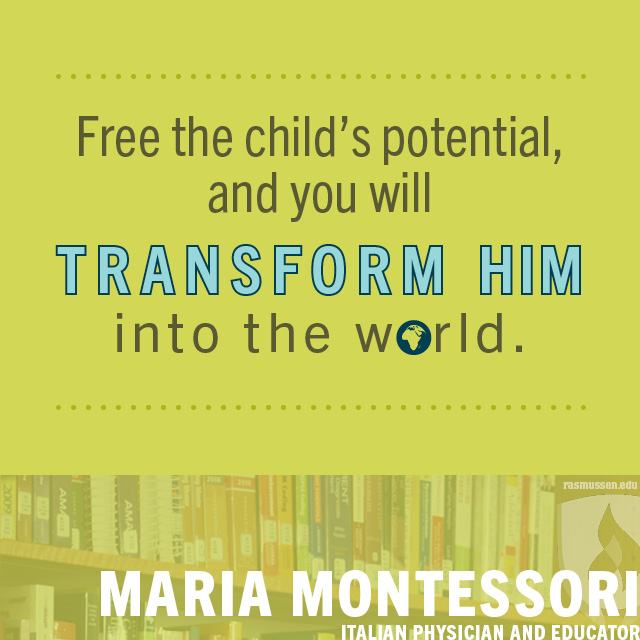 Education is such that there are many stakeholders involved in the teaching and learning (from the students themselves to the powers that be who make decisions that may or may not be in the interest of the students) that transforms minds, encourages hearts and open the doors to opportunity. Education is the light that transcends and illuminates the dark places. Education is the fundamental idea that continues to be important to life...the knowledge and pursuit of happiness. We need to know, have experiences and grow. Students are the primary stakeholders, out of all that we do, we must consider them, because they are the sole beneficiaries of the tremendous work, professional development, and constant growth that we experience as educators. All too often however, students do not drive our decision-making practices.
Education is such that there are many stakeholders involved in the teaching and learning (from the students themselves to the powers that be who make decisions that may or may not be in the interest of the students) that transforms minds, encourages hearts and open the doors to opportunity. Education is the light that transcends and illuminates the dark places. Education is the fundamental idea that continues to be important to life...the knowledge and pursuit of happiness. We need to know, have experiences and grow. Students are the primary stakeholders, out of all that we do, we must consider them, because they are the sole beneficiaries of the tremendous work, professional development, and constant growth that we experience as educators. All too often however, students do not drive our decision-making practices.
If students are not considered when educational decisions are made, are we headed in the forward direction or have we taken steps backwards? That is the focal point of today's post. I believe that all too often, we make decisions that center on ourselves, the educators and the administrators and we think about the students as an afterthought. Our students should be our motivation to persist in accomplishing the task set before us.
People often say that motivation doesn’t last. Well, neither does bathing – that’s why we recommend it daily. ~Zig Ziglar
We have to consistently assess whether what we are doing is effective for the purposes of the children (students). I have asked several education professionals to indulge me by responding to the following statement,
"If decisions are not made with the students in mind..."
You will see several perspectives included in this post and I am grateful to all who responded/participated because I believe your professional opinions and viewpoints are integral to change and valuable to the educational community at large.
Kristin Harrington shares her professional opinions about educational decisions:
"If decisions are not made with students in mind, then schools will not continue to grow. Students essentially are our clients. They "test" our procedures, lessons, and help determine whether the decisions we make are effective. If we are not considering them, then why would we need to make changes, or reflect on our teaching or how our schools are managed. We should be considering what keeps students engaged, how they learn, their interests, their feelings. This what builds a cohesive school staff, and a successful school."
Justin Schleider answers this question:
"If decisions are not made with the students in mind..., there are other factors that are more important. School districts value test scores, funding, parent opinion, and ease all over what is best for students. For example, clear research is ignored showing how movement and free play is more important than math and science for the development of children. Research should not be 'cherry-picked' to suit needs. "
Tammy Neil is standing on the following words:
"If decisions are not made with the students in mind... then we shouldn't be surprised when the students do not MIND the decisions. If we don't keep them in mind, how do we expect them to follow through on those decisions that were made without them? Students should be in the forefront."
Makisha Rogers states:
"A lot of teachers at her school do make decisions with the student in mind. From providing worksheets, to creative ways of student assessment on multiplication for example. Lesson delivery and instruction still bears in mind student needs, however tends to reflect teacher comforts. She further says that:
If decisions are not made with the students in mind... you are resistant to change and you are being selfish and not thinking about what students need TODAY."
Dr. Dorian Roberts shares the following:
"If decisions are not made with the students in mind..., it leads to chaos and debacle. It also leads to a decrease in student achievement and student engagement."
Shervette Miller-Payton states the following:
"If decisions are not made with the students in mind... the school will probably suffer and not be productive or successful."
Dan Koch offers the following:
"If decisions are not made with the students in mind..., we basically condemn kids to being silent partners in this educational process." If we are going to make decisions at our educational institutions and we don't think about what kids need, how they will react to policies that we enact at school sites and how we assess them, and how they their day-do-day happens, it is this big round-table of adults that says we know best. In large part, these are adults that haven't been in a classroom or are so far-removed from being a kid that those decisions are not based on any kind of reality. It's this weird nebulous place that looks good on paper. It has to be put into practice so what is best for students is kept in mind."
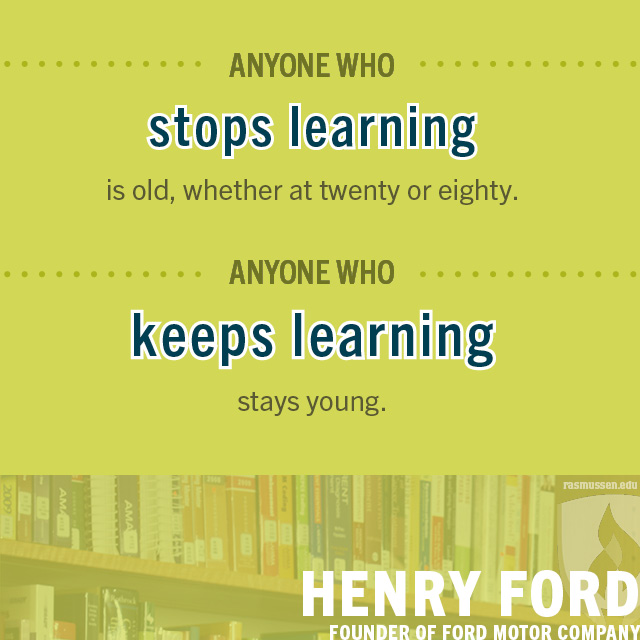
Sarah Thomas contends that:
"If decisions are not made with the students in mind...then what are we really doing?"
Toutoule Ntoya says that:
"If decisions are not made with the students in mind..., then the decision doesn't matter." It doesn't matter and the decision has no impact. At the end of the day, it is all about the kids, whether its interaction with parents, the community or interaction with other teachers.
Clearly what we do in the education realm and how we do it is integral to achieving the right outcomes. I will end here with my own thoughts and that If decisions are made without the students in mind, we are in essence robbing them of their futures. We should definitely evaluate as educators, as schools, as administrators and as educational bodies whether what we are doing is in the students' best interest or ours. Much to think about. Until next time.
"True teachers use themselves as bridges over which they invite their students to cross; then, having facilitated their crossing, joyfully collapse, encouraging them to create bridges of their own." --- Nikos Kazantzakis
It's Worth It!
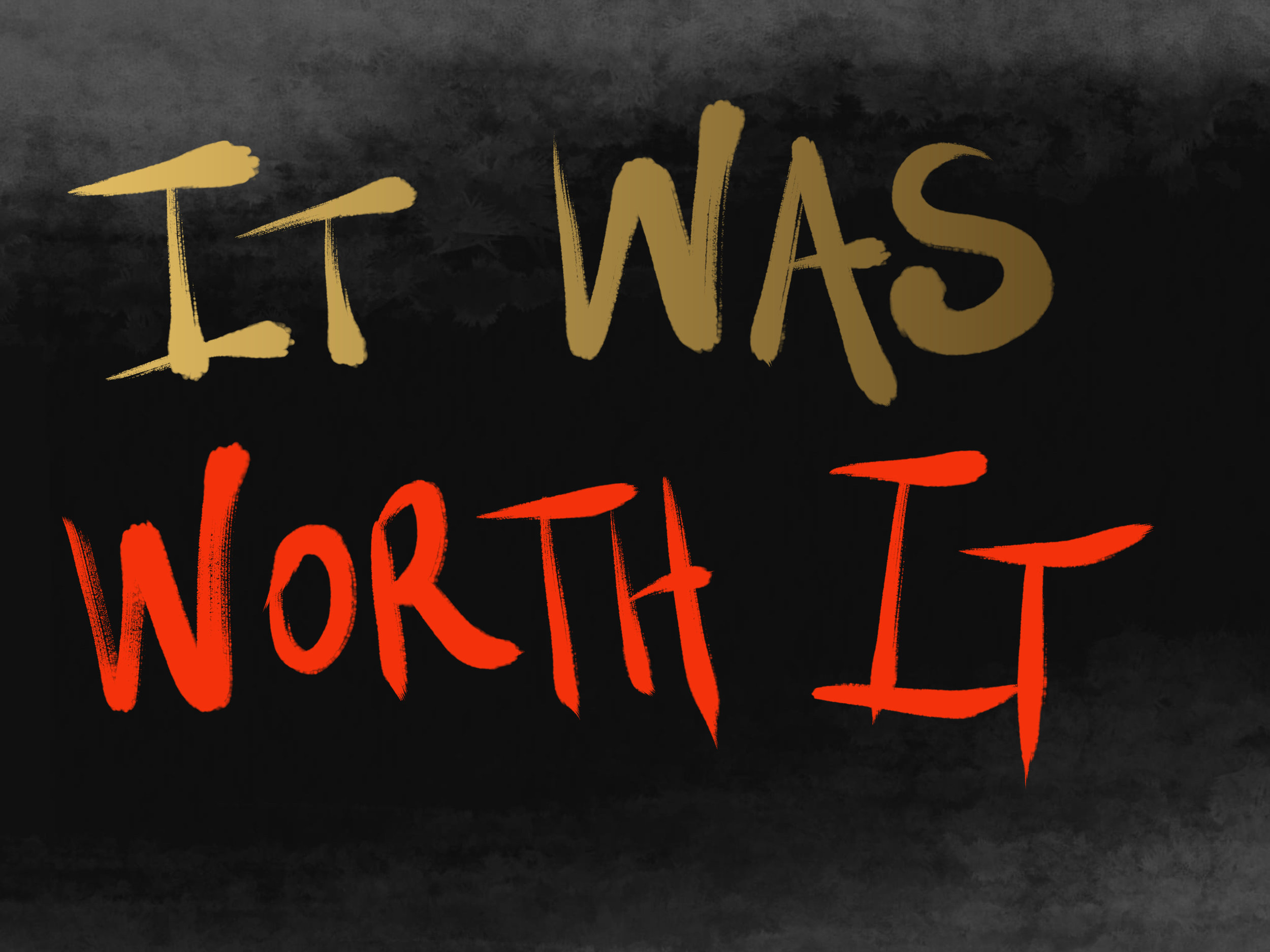 Now you might say what I have said many times, or asked myself...Is it really worth it? We think of our duty as educators to shape, mold and educate the young breed as a calling. I couldn't agree more about the nature of the role an educator plays. It's about something bigger than ourselves. It's a larger than life kind of niche, so much so that the educator plays a central role in the lives of students, dedicating his or her life to instilling in a child the tools and skills necessary to take on a world that continues to grow and change. That's a tall order.
Now you might say what I have said many times, or asked myself...Is it really worth it? We think of our duty as educators to shape, mold and educate the young breed as a calling. I couldn't agree more about the nature of the role an educator plays. It's about something bigger than ourselves. It's a larger than life kind of niche, so much so that the educator plays a central role in the lives of students, dedicating his or her life to instilling in a child the tools and skills necessary to take on a world that continues to grow and change. That's a tall order.
The truth is that the integral seat that educators sit in is not always easy to occupy. In fact, some may say that it is never easy to occupy. Teachers touch tomorrow. Teachers touch today. Teachers made tomorrows easier today. In the words of Dr. Dorian Roberts, we make it look easy. But it is certainly far from that!
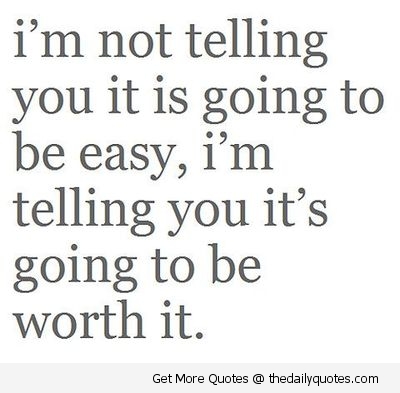
If the truth was to really be told, there are days where I wished I could have slept in on a Monday morning (and maybe not just Monday), whether the weekend was short or long, but the alarm went off (5:15 early), I got up and made my way to work. After my routine Starbucks run, I end up at work, first one there, dragging as I sip every ounce of my Venti hot caramel macchiato, extra shot. Like the flick of a light switch and once I get into the classroom, something happens! I am reminded of the job set before me, not the one I get paid for, but the one I am called to and happen to be compensated for in the process. The creative, enthusiastic facilitator of learning comes alive in me (not to say that it ever sleeps). The espresso just brings him back. Ha!
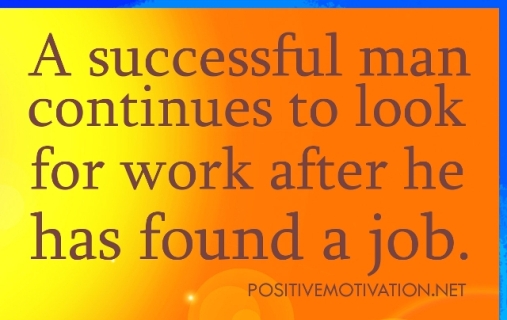
The lesson plans, the committee meetings, the staff meetings, the parent conferences, the grading, the paperwork, the after school clubs, the tutoring, the school even nights, is it really worth it? How do you measure success? Is success the educator who stops learning? Is the successful educator the one who thinks that there is nothing more to learn or do? It is a lot to juggle all of these tasks associated with the the educational seat we sometimes so comfortably sit in. Is it worth going to that compelling conference, establishing that powerful PLN, or attending that engaging EdCamp? Well, when you consider the potential outcomes, I think the answer is clear. There is ALWAYS room for growth.
Consider the student that is always eager to get to your class because there is always wonder involved in the learning process. Think about that kid that only you are able to reach. Don't forget about the student who may have some behavioral concerns, but respects you so much and listens to you. Maybe it's that student that you have become an advocate for. The student who only has one parent (or two) and you easily become the other, or the third. Consider the long-term impact of you taking the time to make a difference in the life of child, when you can develop REALationships with them! A REALationship is a teacher-to-student connection that is REAL, authentic, intentional and impactful.
What you do on a daily basis will carry on beyond you. I will be the first to say IT IS NOT EASY to walk in the large shoes of an educator who never sits down, but constantly seeks to learn and grow so that the students can continue to learn and grow. I will say though that IT'S WORTH IT.
“Follow your dreams. I am not saying it’s going to be easy, but I am saying it’s going to be worth it. – Moffat Machingura”
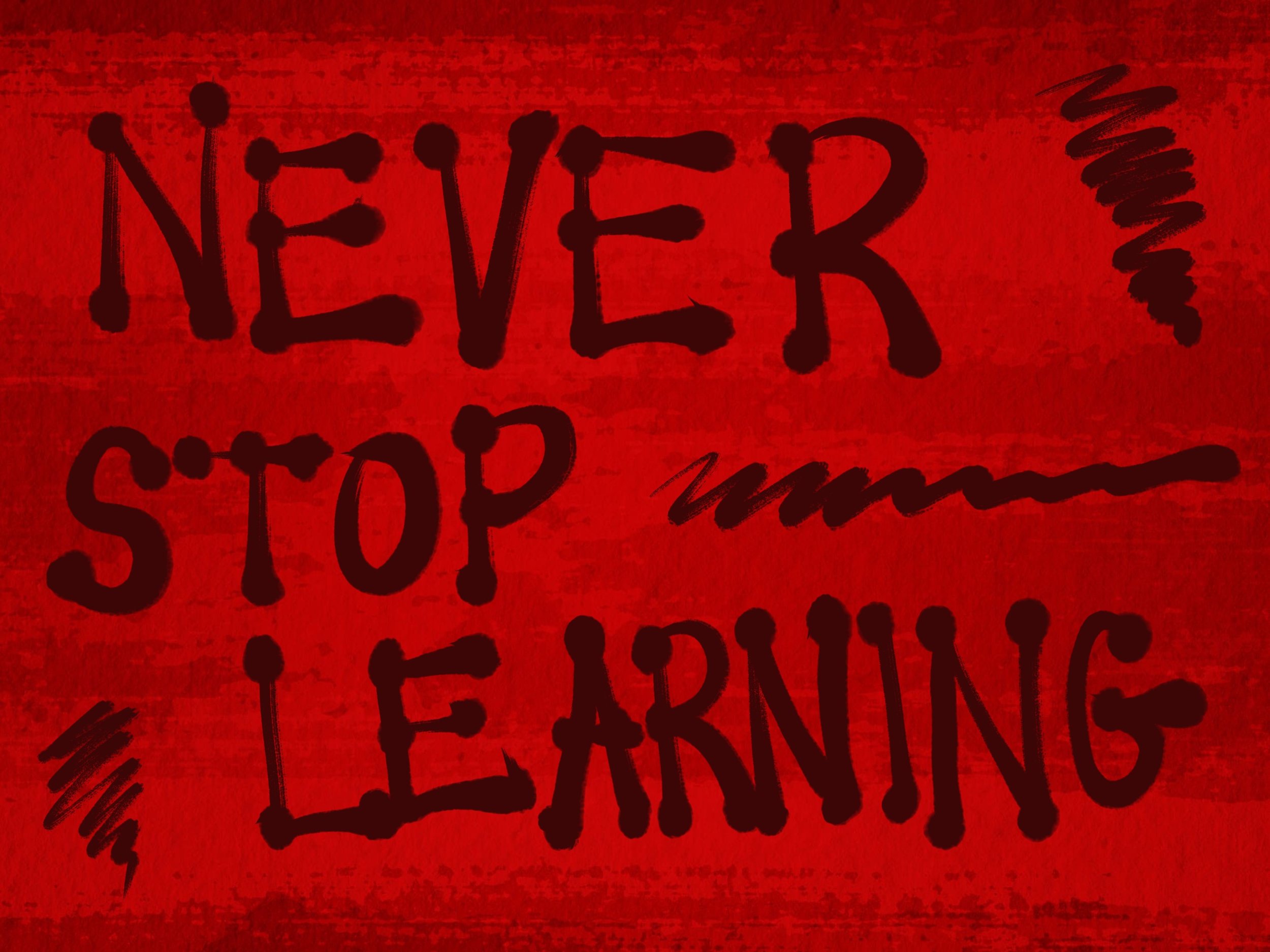
Responsibility: To Know it & To Teach It
I have to say that I grew up in a home that was big on responsibility and making good choices. I didn't always make them, however that was the general expectation as I grew and developed into the independent individual I am today. Today I look back and realize that I am a product of my upbringing and without the lessons learned, I would still be learning them today as an adult, or worse.
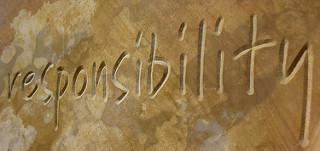
This brings me to the point of this blog post. I will be slightly vague in this post, however I had an experience recently where I understood that instructions were given from home to school that were inconsistent with my expectations of students and the structure of the classroom. I couldn't help but ask myself in the moment "Are we cultivating a society that is irresponsible and without care?" The reason for the question is simply that I never teach with respect to a school year, or a term. I teach with respect to life, integrity and character. I choose to never excuse my students from responsibility, but rather encourage them to embrace responsibility head on. If they do something wrong, be truthful about and take responsibility for it. In my mind, this is the only way that growth can occur. In order to become better, I must first realize where I need work or help.
Winston Churchill said "The price of greatness is responsibility." Do we want our students to be great?
The same goes for when students are expected to come to school ready to dive into learning. Now of course I would never ignore Maslow's hierarchy of needs, acknowledging the fact that there are physiological needs that must be met before learning can take place. To go further, you might even say that taking the time to have teachable moments in the classroom, out-of-the-classroom and at every available opportunity is still meeting a need. So again, my point is that I feel that students need to have experiences, they form the impetus for learning and teachable moments.
If you want children to keep their feet on the ground, put some responsibility on their shoulders.
~Abigail Van Buren
If I had never been allowed to fail, I would not truly understand what it meant to succeed. If I was never given the opportunity to learn responsibility, then I might be irresponsible today. I believe it is important to note that school, at least for me as a teacher, is not simply six and a half hours of rhetoric and academia. What good is all that anyway without a focus on character, integrity, honesty and responsibility?
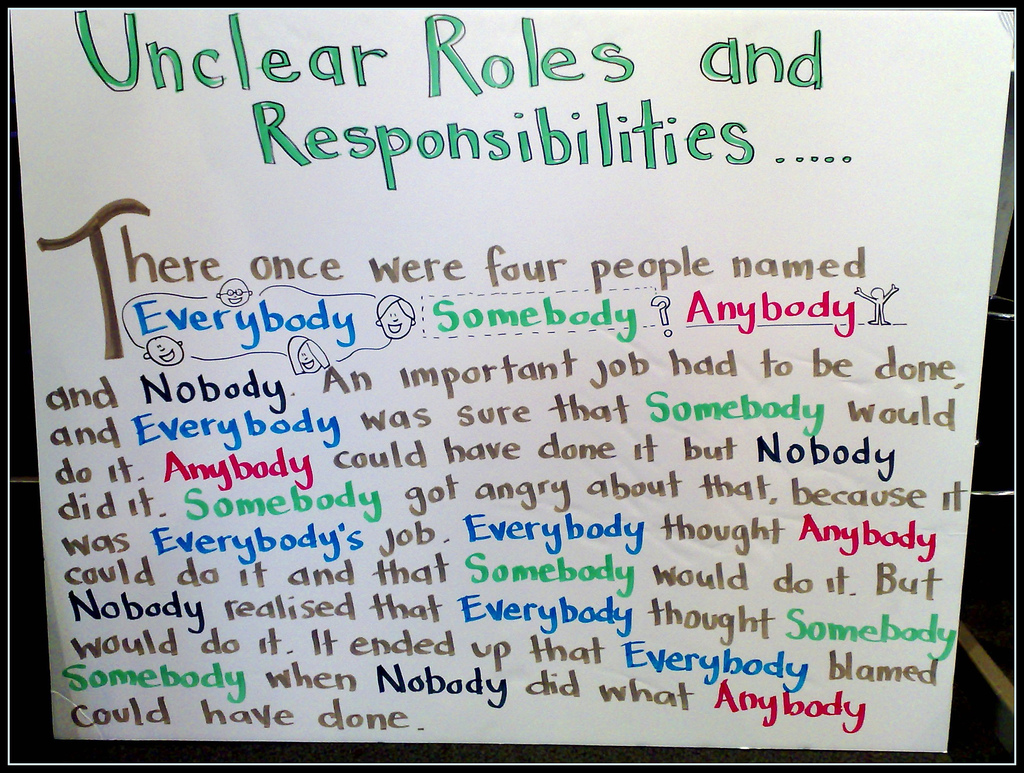
Ninety-nine percent of all failures come from people who have a habit of making excuses."
I often tell my students that intelligence is great, in fact it pays to "know," but what good is all of that knowledge when you are not able to pass it on to others? Character goes a LONG way. I tend to paint that picture that when it comes to that grand job, or that ivy league school of choice, what is it about you that would make you stand out from the crowd? Consider someone who is at the top of his or her class academically, but lacks the wherewithal to socially relate to his or her peers, colleagues or higher ups. Hence, as an educator, I believe in teaching students those elements of character, that along with academic success, paint a much cleaner and clearer painting on the wall for all to see.
Responsibility is a life skill. Why not start today in school with parents joining in with teachers in order to wet the student's appetite with responsibility? Instead of excusing behaviors, what would happen if we turned them into teachable moments. Yes you did this, but let's talk about how we want and need you to learn to engage responsibly. After all, the ultimate goal is for them to become an upstanding member of society, a leader, a servant, an individual. A little bit of responsibility can go a long way, as it continues to develop over time. I believe we (educators and parents) must be intentional with our interactions and support of students because after all, these individuals will one day need to pass on these values to others.
"Success on any major scale requires you to accept responsibility . . . . In the final analysis, the one quality that all successful people have is the ability to take on responsibility."
— Michael Korda Editor-in-Chief, Simon & Schuster
In My Own Skin.
In My Own Skin. I have the same skin today as I did back then (maybe a little darker thanks to the sun), but of course I am not speaking literally, per say. I often think back to all of the times where I underestimated myself, didn't see where I had value and basically doubted that I had anything to offer anyone. Do I have what it takes? Can I accomplish the purpose hidden within my existence? Can I act on that drive that so often bubbles up inside of me? I have often asked myself if I had it in me. Isn't it ironic that the guy who doubted what he had to offer came in contact with an amazing first grade teacher who CARED? She cared about the way I learned. She CARED about the way I wrote things on paper. She CARED about who I grew up to me, my character if you will. She CARED about the days ahead that I didn't know anything about. You might even say that she CARED about me more than I did at the time. I had AMAZING parents, and along with this teacher, my life was shaped. I wonder if I would have turned out the way that I did without this teacher's influence in my life. You might say she saw what I was too young or naive to see, but had she not had the eyes to see it, just maybe my entire path would have been altered.
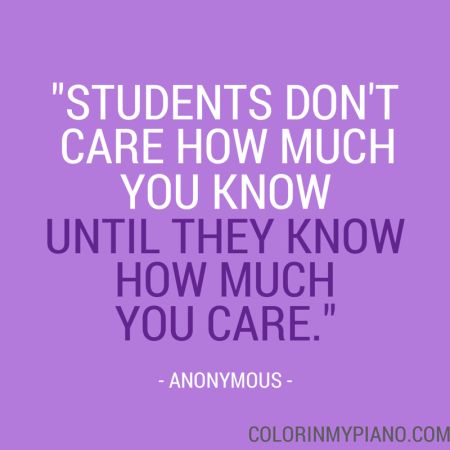 I became a teacher in 2004, immediately after I graduated with my baccalaureate degree from the University of Central Florida in Orlando. I was completely motivated by the idea of being able to enter a world where I could help others, perhaps like my eloquent and CARING first grade teacher. I started out with so much enthusiasm and excitement and that enthusiasm and excitement was contagious. My students saw it, my students felt it, my fellow educators and principals saw and felt it too. While that excitement and enthusiasm has stayed with me over the course of the eleven years of being a classroom teacher, there have been many challenges along the way that could have easily encumbered me, if I allowed it. It's not a gender thing, though in some cases it has become that. It's not a color thing, though sometimes it seems to be that.. It's a human thing.
I became a teacher in 2004, immediately after I graduated with my baccalaureate degree from the University of Central Florida in Orlando. I was completely motivated by the idea of being able to enter a world where I could help others, perhaps like my eloquent and CARING first grade teacher. I started out with so much enthusiasm and excitement and that enthusiasm and excitement was contagious. My students saw it, my students felt it, my fellow educators and principals saw and felt it too. While that excitement and enthusiasm has stayed with me over the course of the eleven years of being a classroom teacher, there have been many challenges along the way that could have easily encumbered me, if I allowed it. It's not a gender thing, though in some cases it has become that. It's not a color thing, though sometimes it seems to be that.. It's a human thing.
It is impossible to "C.L.I.M.B.E." when the pressures and weights are allowed to weigh you down. Pressures and weights are vast and can take on many shapes and forms. As an educator, I feel it is my role to help my students C.L.I.M.B.E. I can't very well succeed in that endeavor when I am not comfortable in my own skin. What do I mean by that? Well I absolutely believe that educators have to have a tenacity and a desire to not just teach students, but reach them. The reach is not always comfortable. You may not always feel the support you think you need. You maybe be the only one in a space that thinks like you do, but the students must be reason. The students must be the focus. And so if they are the reason and the focus, then I, the educator must be comfortable in my own skin. I must be comfortable enough to pursue, to go after learning, to keep learning, so that I can keep impacting.
I don't know where I'd be or who I'd be without the challenges and obstacles. They couldn't be taught to me in the four walls of the brick and mortar college. Learning came in the challenges. I took away some things from the obstacles. I quickly learned that the obstacle is the way. So when challenges rise in the world of education, I have to remember the purpose for which I entered it. It was for the students. It was to make an impact. It was to give selflessly to someone else such that we can all be better. So if I am to be comfortable in my own skin, I have to be willing to be the first one to try something. I have to be the one that is willing to go out on a limb for students. I have to be the one that acts intentionally with purpose and mission. Sometimes that purpose and mission makes you feel alone, even when you are in a room full of people. It is important to embrace the difference and be comfortable with that difference and its uniqueness and authenticity. Maybe that difference is the difference necessary to be a catalyst for change. One of the greatest things in life is understanding and appreciating the differences in people, so that we can use those differences to bring us together. I have to okay with what may be eccentric thoughts and innovative ideas when they don't line up with another's thinking, or a cookie cutter approach. I have to okay with the desire to fully embrace being compelled to reach, teach and be, In My Own Skin.
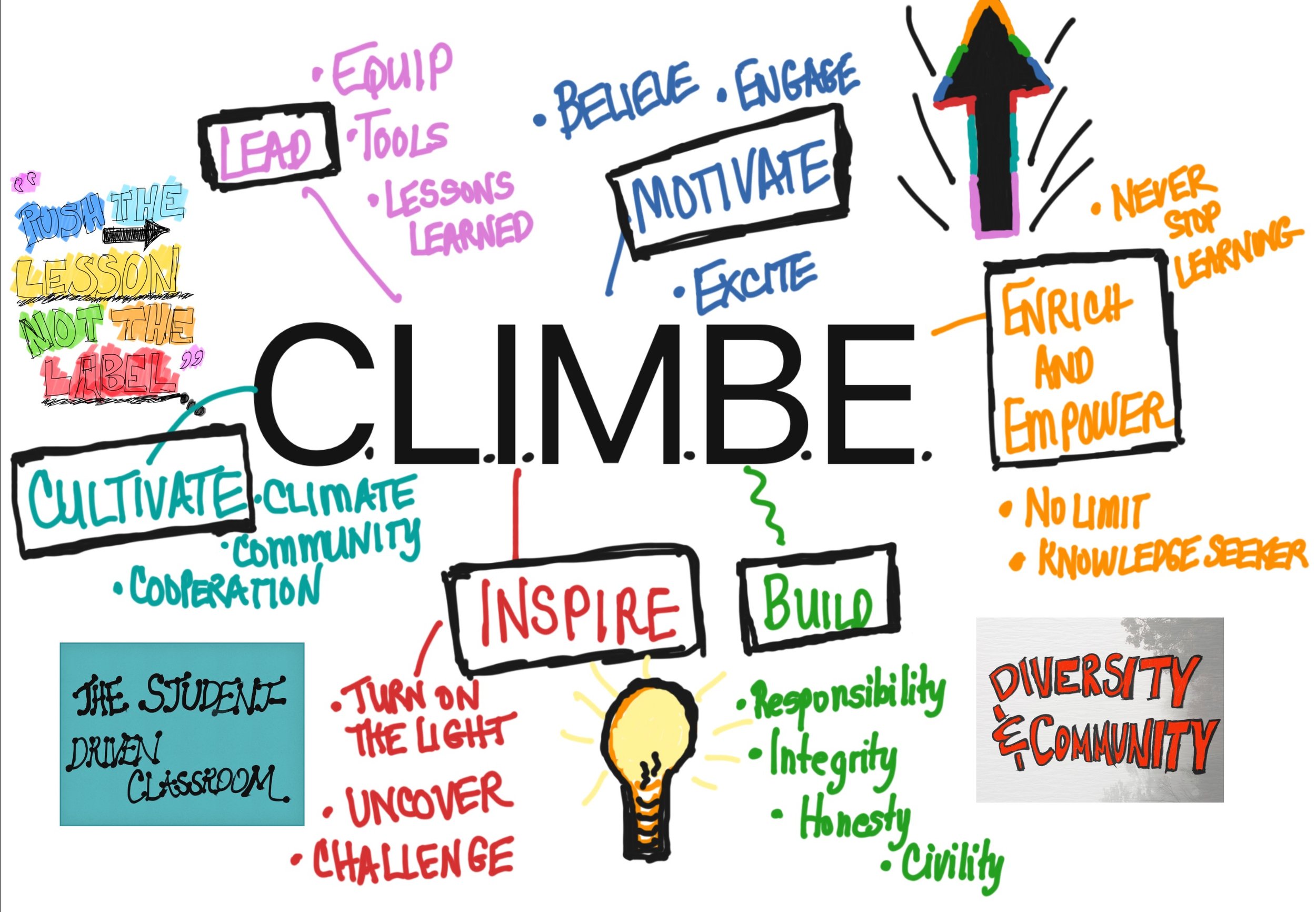
EdCamp Ocala
EdCamp Ocala
EdCamp Ocala was another exciting adventure, bringing together teachers, librarians, technologists and administrators to learn and grow together. I honestly do not think it is possible to gather on an off day (Saturday), not getting paid, on your own free will and not learn something from someone else. While some ideas shared were like a review of learning, others were ideas shared that were motivating for me, so much so that I could not wait to become immersed in it with my students. So I am sharing just two of the big ideas taken away from today's EdCamp experience.
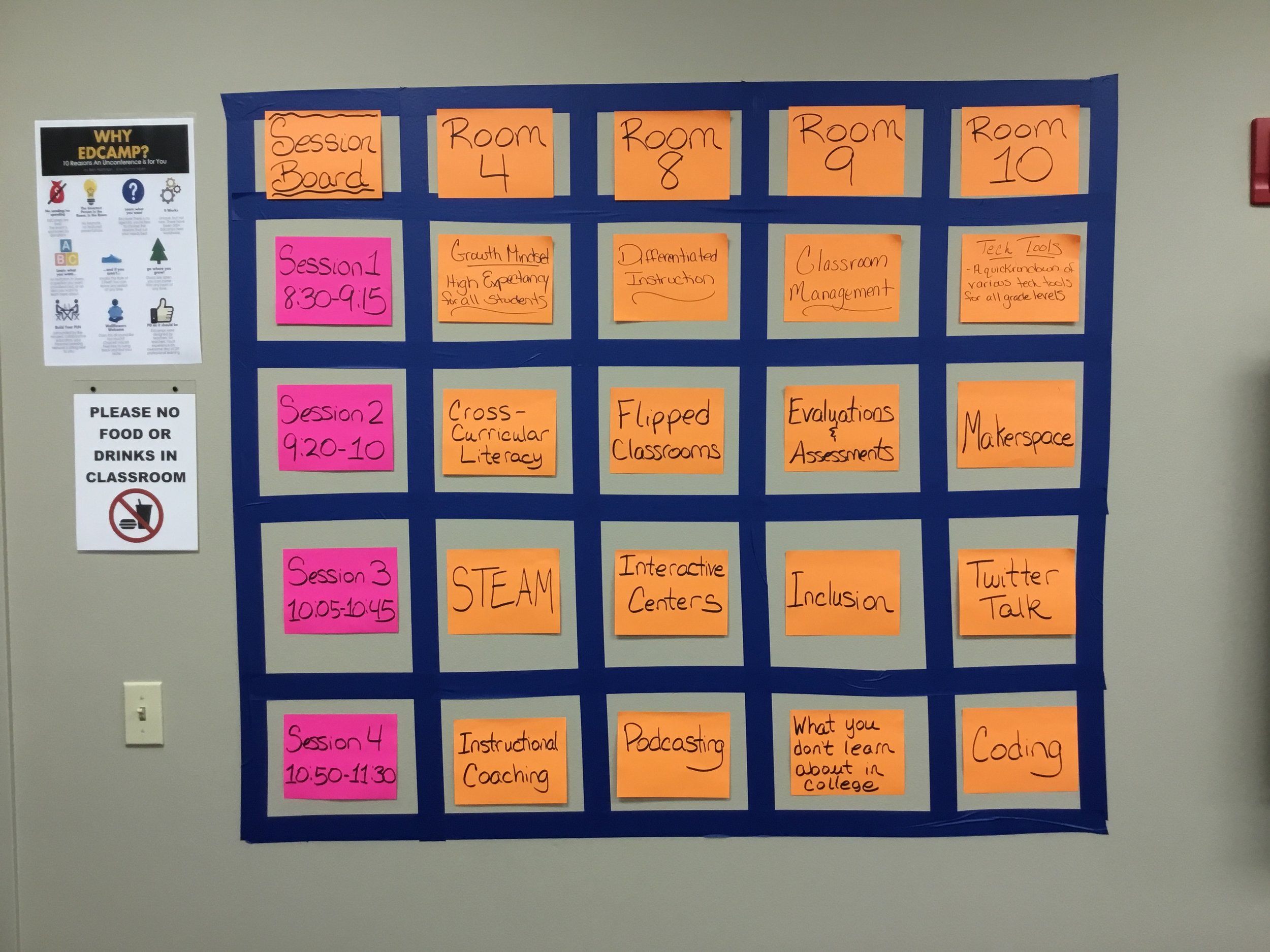
STEAM
Why is STEAM so important in education today? The arts seem to be getting lost in translation more and more. Yet we wonder why the ability to be social and interact with others is lost? The arts is a great way to put students in social situations causing them to have to work together to solve problems and even build tolerance, celebration and teamwork.
One idea conveyed in the session on STEAM was the use of visual representation, whether through artwork or video for students to convey their understanding of learned content. This type of activity definitely goes a lot farther than a simple worksheet, not to mention that it may be wasted paper. Even allowing students to record audio as a means of solidifying their knowledge (podcasting is an example, shared in next session).
Another idea (shared by Kristin Harrington) in the session was the EPALS Smithsonian “Invent It Challenge.” This opportunity is for students from ages five through 21, and is less contest driven, but more in line with allowing students the space to create. They walk through the engineering process of:
1) Think it
2) Explore It
3) Sketch it
4) Create it
5) Try it
6) Tweak It
7) Sell It
and can gain a patent for their creation. What a great way to engage students in the arts as well as make learning fun.
Problem-based learning within STEAM is also another way to get students engage in the creation process (whether visual arts, fine arts or performing arts) as well as promote teamwork, cooperation, problem-solving, critical thinking and even resourcefulness. For example, I mentioned a problem-based learning exercise of my own creation that easily connects to a unit of learning about Native Americans, called “Build it or Bedlam.”
I have also used tableaus where students are tasked to use themselves to visually represent ideas from a lesson or literature. I have shared some pictures here. Students work to form a house using only their bodies. For additional challenge, students all had to be at different levels, which was another piece of the learning process, as we talked about how a level 1 was different from a level 5 and a level 10.
Podcasting
Podcasting is an idea that I have recently gotten into and of course my students are very excited about. We started our first one, with an idea from Sean Farnum aka MagicPantsJones titled "One Word for 2017," which may have been something the student wanted to focus on, or otherwise a word that the student found relevant for 2017. Students wrote a paragraph at most to express their word and reason for choosing it, and perhaps an anecdote that they wanted to share. I am excited to say that students are just so honest at times. I cannot wait to finalize the podcast and share it. I learned more from the educators in the room at EdCamp Ocala, including topic ideas and how each of them might approach podcasting in the classroom and its various uses. We talked about Audacity and Podomatic as platforms that are useful as well.
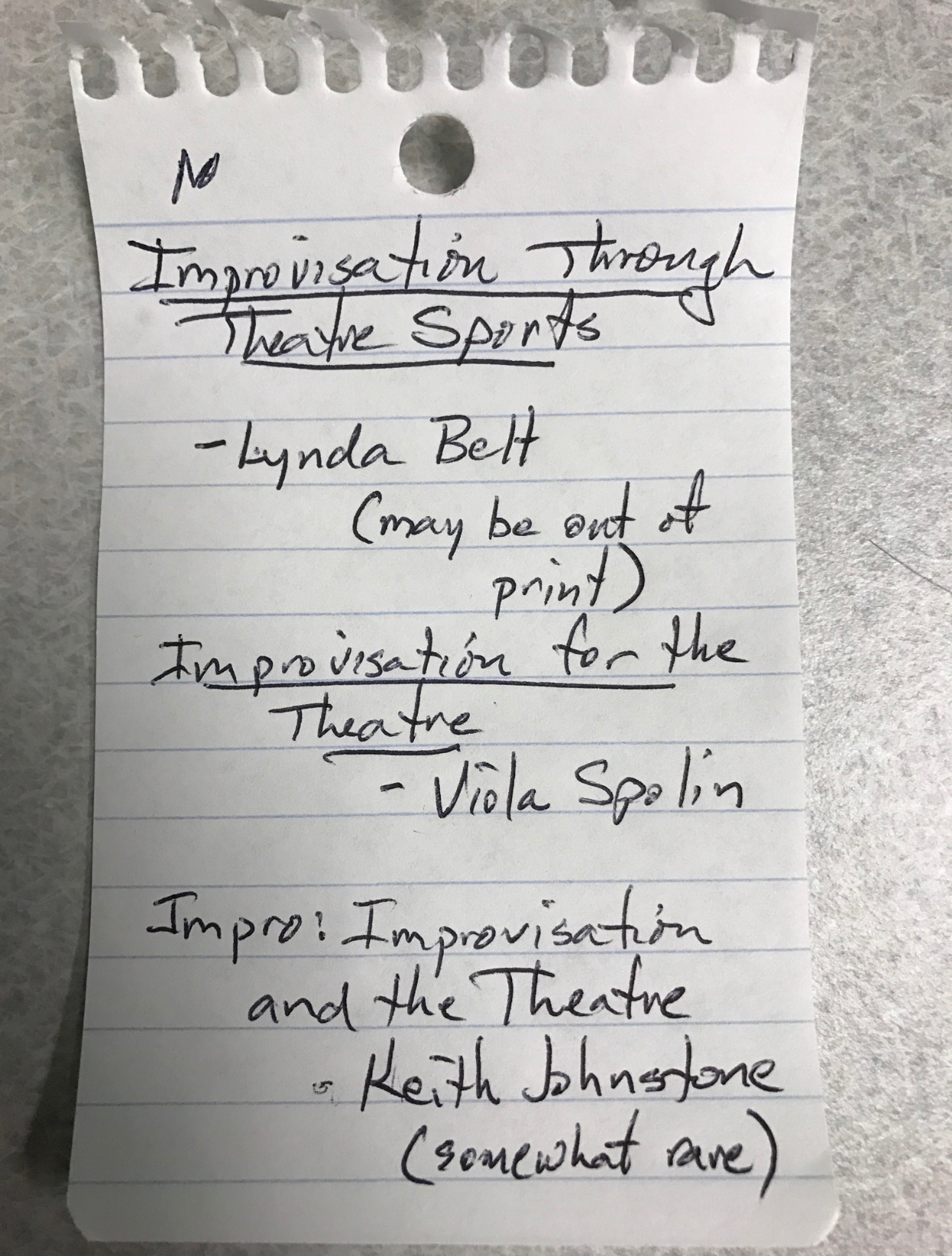
This information was passed along to me by a theater teacher within the session. He talked a lot about improvisation and getting the students up and moving, as well as understanding how to visually represent ideas and even better understanding characters, for example, when you have to put yourself in another's shoes. All in all, for Ocala's first Edcamp, it was a great opportunity to connect with other educators and spend time with many educators already known, as well as meet in person those that you have interacted with on Twitter.
A Little Bit of Service Goes a Long Way
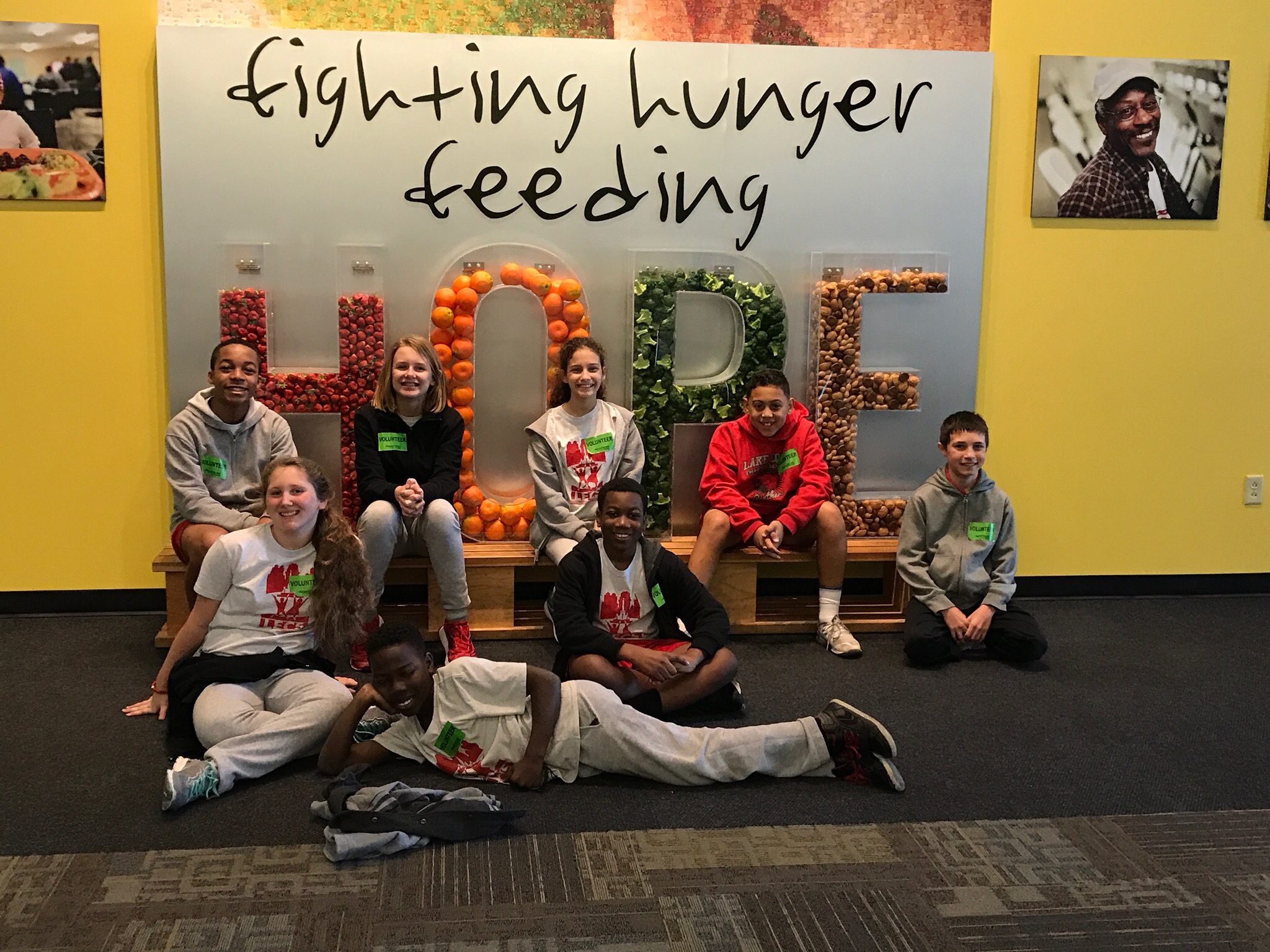
This word, that students chose to take a photo in front of, epitomizes the reason why we chose to serve today, to bring hope. Second Harvest Food Bank is all about hope, spreading hope too those in need, putting smiles on faces and food in the bellies of the community. We made our journey to the food bank on Tuesday, January 31, 2017. Our charge was about 4 hours of donation sorting. Students dived right in, along with me and the parent volunteer that accompanied us.
Students listened attentively as Ms. G. delivered instructions regarding the task of the day and the specifics about what needed to be accomplished.
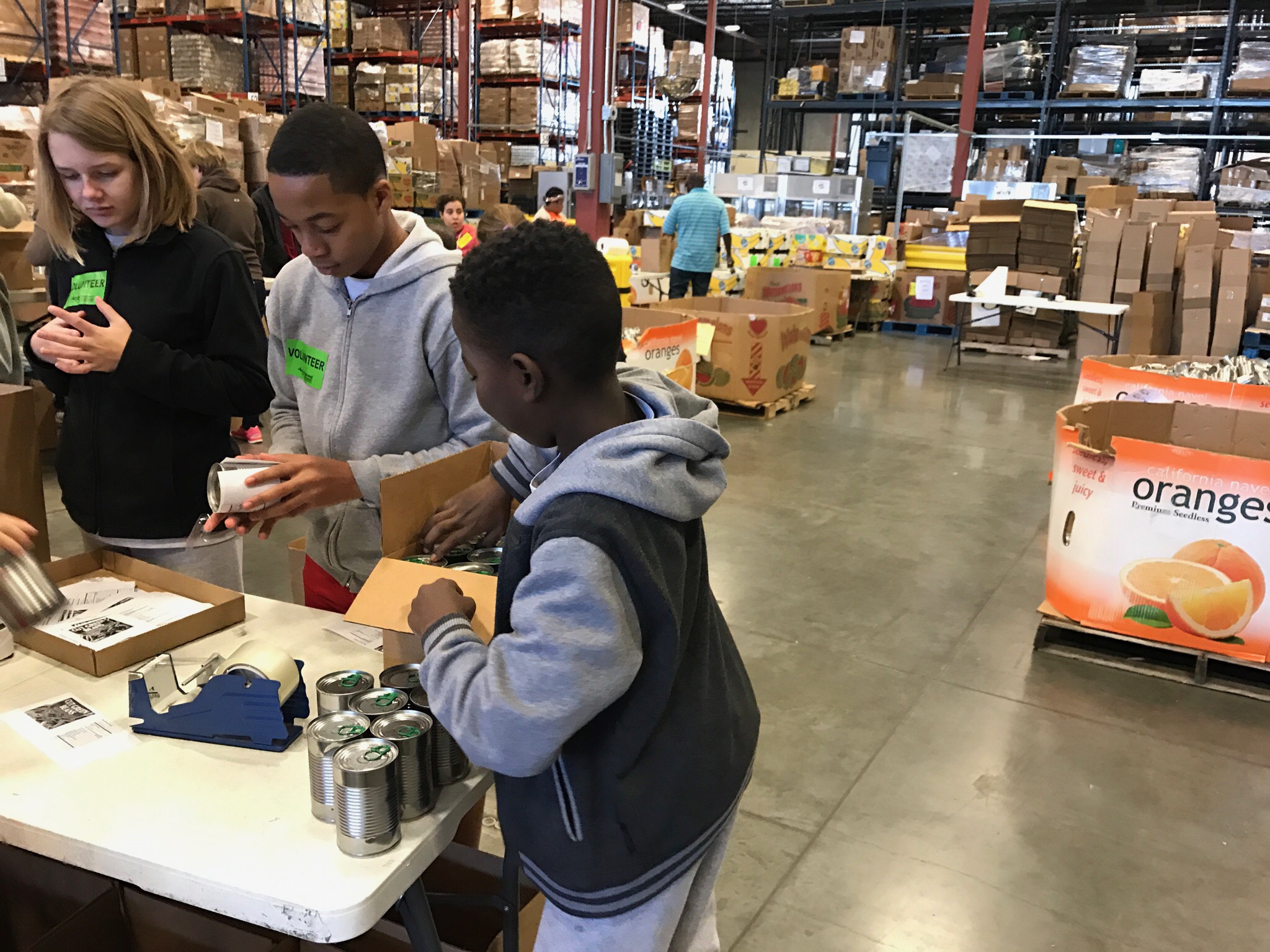
As you can see above, students work to relabel these cans and box them up to be given to families in need. These students did such an incredible job and honestly for me, it was listening to the conversations had by them while working, from music to the ability to give back to the community. We completed a short periscope video where students highlighted their feelings about what was happening in here. They really understood the value of serving and asked several times about staying longer, not wanting to return to school. Students were lifting boxes, sorting donations to determine what was good and what needed to be tossed and really learning what it means to work together. After a while, students learned how to streamline the process all on their own. They identified a role for themselves, even if that role was bouncing between the tasks in order to accomplish the ultimate goal. They had great takeaways from this experience and genuinely each expressed their excitement about returning in February and March. When I reported back to school, I communicated to my administration how impactful the experience was and how each student internalized it. I encouraged parents to talk to their students about this when they arrived home, so that the parent understood the relevance of the permission they each gave for their students to attend. These students will NEVER be the same. I will NEVER be the same.
 The students were proud of their accomplishments. Here (above), students posed by the 54 boxes they so efficiently packed, each box containing 24 cans. Each box weighed about 25 pounds.
The students were proud of their accomplishments. Here (above), students posed by the 54 boxes they so efficiently packed, each box containing 24 cans. Each box weighed about 25 pounds.

These students rode with me in my car and why were they competing for the front seat, not to mention how they wanted to ride to and from the food bank with me, not extending the opportunity of students in the other car to ride back with me. The conversations had by these students though were interesting as I drove, had a navigator and one to control the radio to make it suitable for all passengers. What is interesting, as I reflect on this experience, is the effect of taking the time to demonstrate service and what that means is a learning experience. Students can glean so much from an educator who sets the example for what it means to be a good citizen honing in on the benefits of service. My life has been dedicated to service, as an educator for eleven years and as a veteran of the US Air Force for eight years. Leading by example is powerful. Yes, many will hear what you say, but they will respect you for what you do.
[wpvideo Nx6jxeXD]
EdCampOrange - 1/28/2017
Just when you thought that the learning was over, EdCampOrange occurred at Cypress Creek High School in Orlando. When you are a lifelong learner, the learning really never stops, the sharing continues to happen and your thirst for more may never fully be quenched. I like surrounding myself with people who share in that passion.
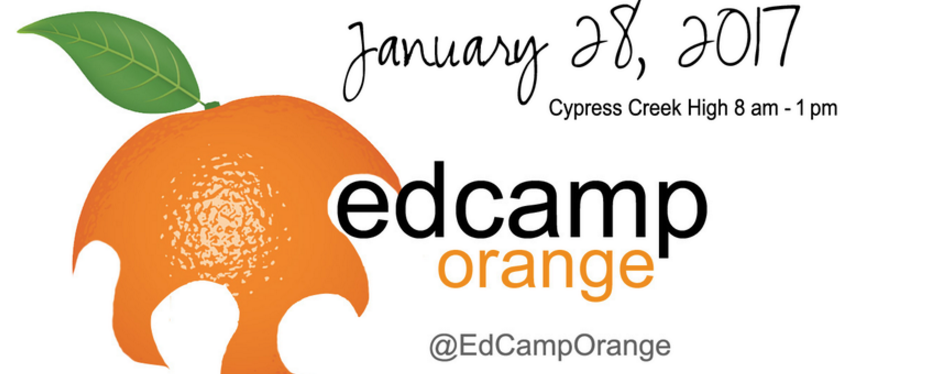
Sean Farnum (@magicpantsjones) opened the day with the first session on podcasting. He spoke about the excitement kids had with regards to being able to share their voices with the world, gaining a global audience. Further, he discussed the student growth that podcasting allows.
 Carlos Fernandez (@fernandezc4 on Twitter) led the conversation on Minecraft EDU and its increasing excitement for educators and students alike. Minecraft is a well-known game played by many students we interact with on a daily basis.
Carlos Fernandez (@fernandezc4 on Twitter) led the conversation on Minecraft EDU and its increasing excitement for educators and students alike. Minecraft is a well-known game played by many students we interact with on a daily basis.
This was my first time attending EdCamp Orange and I am grateful to have had the opportunity to continue learning. I am eager to get started with podcasting as we move forward with the school year.








